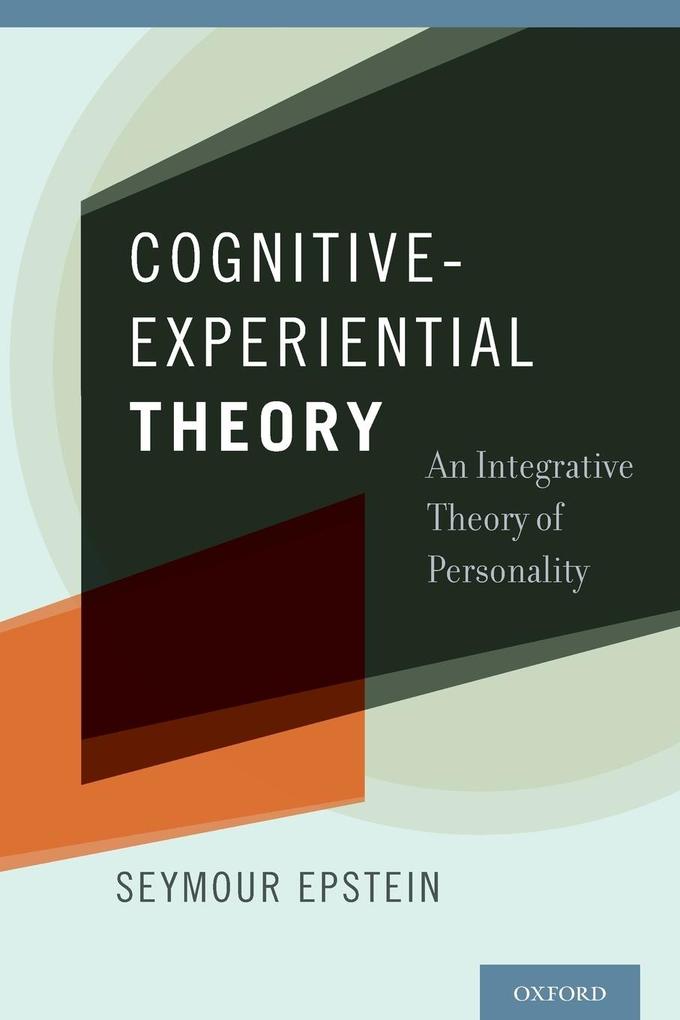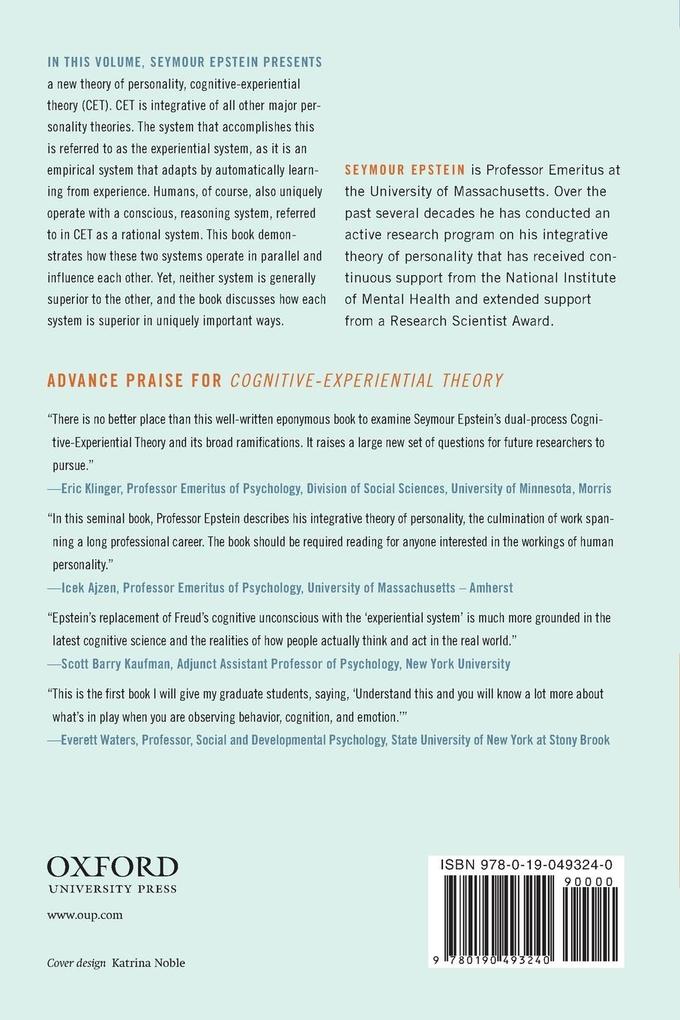
Zustellung: Do, 24.07. - Mo, 28.07.
Versand in 5 Tagen
VersandkostenfreiBestellen & in Filiale abholen:
In this volume, Epstein presents a new theory of personality, referred to as cognitive-experiential theory, that is integrative of all other major personality theories. This integration is accomplished by expanding upon current basic assumptions, including the assumption that all higher-order animals automatically construct an implicit theory of reality that is necessary for adapting to their environments and that is, therefore, inherently reinforcing.
Inhaltsverzeichnis
- Acknowledgments
- Introduction
- Part I. The Theory
- Chapter 1. The Basic Theory: Two Systems
- Chapter 2. Evidence in Real Life of Two Modes of Information Processing
- Chapter 3. The Content and Organization of the Experiential System: With an Emphasis on Basic Needs and Beliefs
- Chapter 4. Motivation Further Considered and Emotions
- Chapter 5. Interactions Between and Within the Two Systems: Conflict, Compromises, Synergy, Repression, and Dissociation
- Part 2. Development and Adjustment
- Chapter 6. Development
- Chapter 7. Coping and Defense Mechanisms
- Chapter 8. The Maladaptive Behavior of Everyday Life
- Chapter 9. Neurosis, Post-traumatic Stress Disorder, Psychosis, and Autism
- Chapter 10. Depression
- Part 3. Clinical Applications
- Chapter 11. Psychotherapy 1: Constructive Thinking, Cognitive Therapy, Behavior Therapy, Cognitive-Behavioral Therapy
- Chapter 12. Psychotherapy 2: Psychodynamic Therapy, Client-centered Therapy, Gestalt Therapy, Psychosynthesis, Cognitive-experiential Therapy, Relapse
- Chapter 13. Psychotherapy 3: Communicating with the Experiential System Communicating with the Experiential System Through the Use of Fantasy
- Part 4. Broader Implications
- Chapter 14. Implications
Produktdetails
Erscheinungsdatum
15. Dezember 2015
Sprache
englisch
Seitenanzahl
354
Autor/Autorin
Seymour Epstein
Verlag/Hersteller
Produktart
kartoniert
Gewicht
603 g
Größe (L/B/H)
234/156/21 mm
ISBN
9780190493240
Entdecken Sie mehr
Bewertungen
0 Bewertungen
Es wurden noch keine Bewertungen abgegeben. Schreiben Sie die erste Bewertung zu "Cognitive-Experiential Self Theory" und helfen Sie damit anderen bei der Kaufentscheidung.










